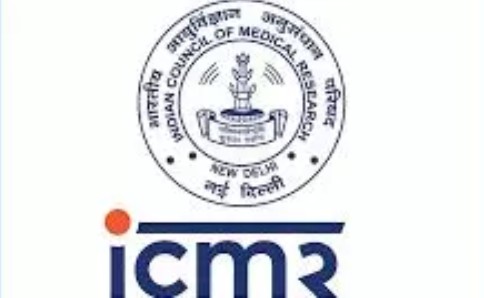Health
Survey Reveals Refined Grains Drive Obesity Surge in India

A recent study conducted by the Indian Council of Medical Research (ICMR) highlights a troubling trend in dietary habits among Indians, linking an overreliance on refined grains, particularly white rice, and added sugars to a significant rise in obesity and diabetes. The findings, published in Nature Medicine, reveal that more than 62 percent of daily caloric intake in Indian diets is derived from low-quality carbohydrates. This dietary pattern is prevalent across the country, including in Telangana, where similar risks have been observed.
The comprehensive study involved over 18,000 adults and was conducted as a national cross-sectional survey from 2008 to 2020. It reported that a staggering 62.3 percent of total dietary energy comes from sources such as white rice, milled wheat, and added sugars. In contrast, protein intake is notably low, averaging about 12 percent of total energy, primarily from plant sources. The consumption of saturated fats also exceeds recommended levels in most states, including Telangana.
High consumption of refined cereals and insufficient protein intake has been associated with increased risks of type 2 diabetes, prediabetes, and obesity. The survey’s results indicate that excessive carbohydrate intake, irrespective of grain type, raises the risk of these health conditions by 14 to 30 percent. Furthermore, the intake of added sugars surpasses the recommended limit of 10 percent of total dietary energy, contributing to heightened metabolic risks.
A noteworthy aspect of the study is the recommendation that replacing just 5 percent of energy derived from carbohydrates with plant-based protein, dairy, eggs, or fish can significantly decrease the likelihood of diabetes and prediabetes. While switching from refined cereals to whole grains like whole wheat or millet flour did not appear to mitigate risk, intact whole grains such as brown rice and unprocessed wheat and millets may offer health benefits, though these options are rarely consumed in India.
The study underscores the urgent need for public health initiatives aimed at reducing carbohydrate and saturated fat consumption while promoting healthier food choices, including pulses, legumes, and dairy proteins. It also calls for a restructuring of the Public Distribution System to prioritize protein-rich foods over refined grains.
Data for the study included patterns observed in Andhra Pradesh, where white rice has long been a staple food, and millet consumption is minimal. Dr. Mohsin Aslam, a consultant physician at the Asian Institute of Gastroenterology in Somajiguda, noted that the findings resonate with his clinical observations.
Dr. Aslam emphasized the importance of reducing overall caloric intake through portion control and incorporating more nutrient-dense foods into diets. He advises limiting refined carbohydrates such as white rice and sugar, advocating for their replacement with whole grains like millets and brown rice in moderation. Increasing the intake of fiber-rich foods, including vegetables, leafy greens, pulses, and low glycemic fruits, is also critical.
To address dietary challenges, Dr. Aslam suggests practical community-based strategies. He advocates modifying traditional Indian recipes to lower the use of oil, sugar, and salt while retaining flavor through herbs and spices. Promoting family-oriented or community group interventions can enhance adherence to healthier eating practices. Additionally, he highlights the need to tackle the social and emotional factors associated with eating, particularly during festive occasions, through mindful eating practices.
The findings of this survey paint a stark picture of the current state of Indian diets and the urgent need for intervention to combat rising obesity and diabetes rates. As awareness grows, the hope is that both individual and collective actions will lead to healthier dietary habits across the nation.
-

 World5 months ago
World5 months agoSBI Announces QIP Floor Price at ₹811.05 Per Share
-

 Lifestyle5 months ago
Lifestyle5 months agoCept Unveils ₹3.1 Crore Urban Mobility Plan for Sustainable Growth
-

 Science4 months ago
Science4 months agoNew Blood Group Discovered in South Indian Woman at Rotary Centre
-

 World5 months ago
World5 months agoTorrential Rains Cause Flash Flooding in New York and New Jersey
-

 Top Stories5 months ago
Top Stories5 months agoKonkani Cultural Organisation to Host Pearl Jubilee in Abu Dhabi
-

 Sports4 months ago
Sports4 months agoBroad Advocates for Bowling Change Ahead of Final Test Against India
-

 Science5 months ago
Science5 months agoNothing Headphone 1 Review: A Bold Contender in Audio Design
-

 Top Stories5 months ago
Top Stories5 months agoAir India Crash Investigation Highlights Boeing Fuel Switch Concerns
-

 Business5 months ago
Business5 months agoIndian Stock Market Rebounds: Sensex and Nifty Rise After Four-Day Decline
-

 Sports4 months ago
Sports4 months agoCristian Totti Retires at 19: Pressure of Fame Takes Toll
-

 Politics5 months ago
Politics5 months agoAbandoned Doberman Finds New Home After Journey to Prague
-

 Top Stories5 months ago
Top Stories5 months agoPatna Bank Manager Abhishek Varun Found Dead in Well









